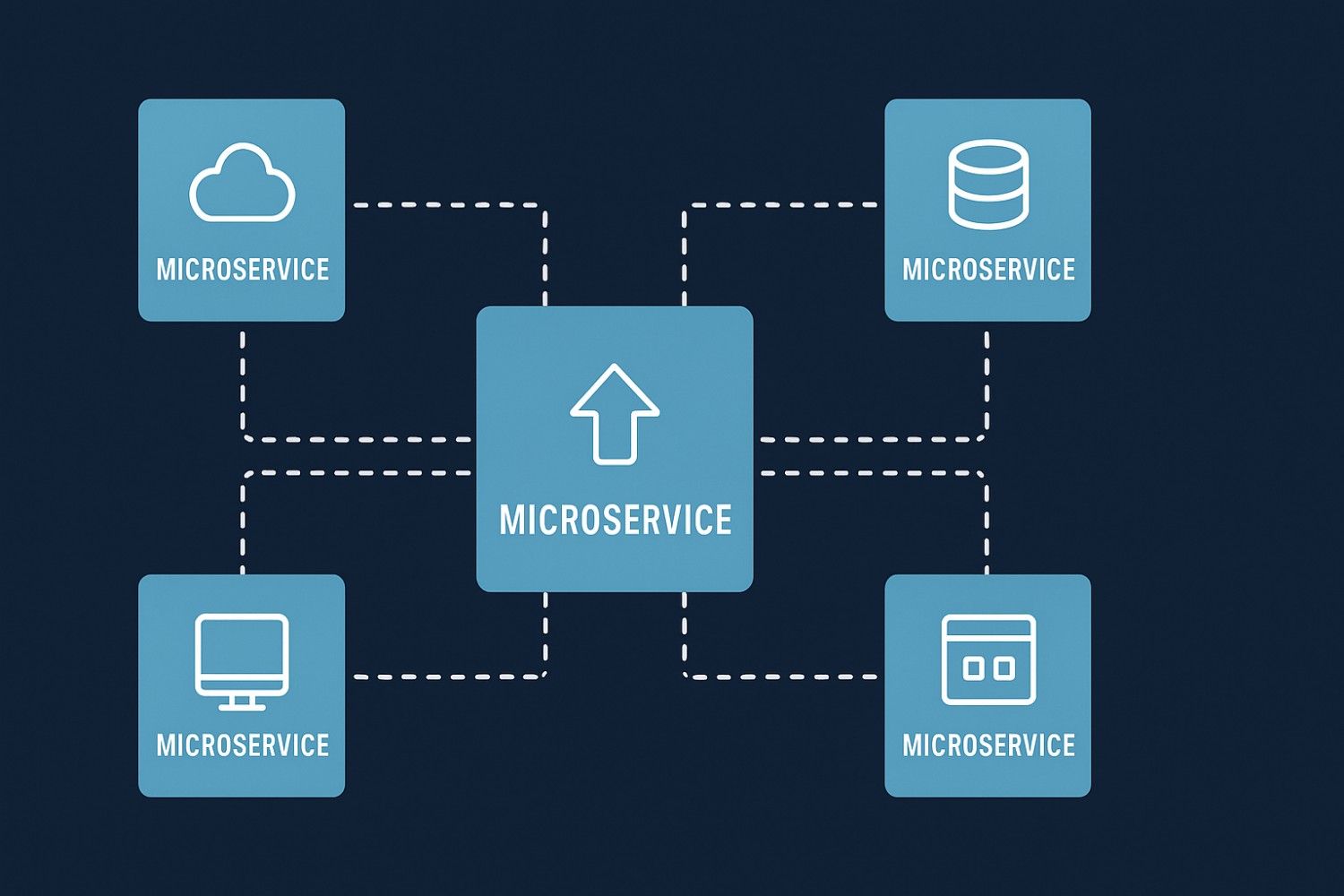Table of content
SHARE THIS ARTICLE
Is this blog hitting the mark?
Contact Us
Table of Contents
- Inconsistent Testing Practices
- Escalating Defects and Bugs
- Lack of Test Automation
- Inadequate Test Coverage
- Poor Release Management
- Final Remarks
- FAQs
Having a high-quality software application is critical for any business, especially startups and established enterprises. But how do you know if your current Quality Assurance (QA) practices are enough?
Dive in to this blog post to find out! This blog post is for CTOs, project managers, and anyone who wants to ensure their software is reliable, functional, and secure. Here we'll discuss five signs that your organization can benefit from professional QA consulting services.
Here's how QA Consulting can help your business:
- Catch bugs early: QA consultants can identify and fix problems before they reach customers, saving you time and money.
- Improve user experience: A good QA process ensures your software is user-friendly and meets customer expectations.
- Reduce security risks: QA consultants can help you identify and address security vulnerabilities in your software.
- Stay ahead of the competition: With a solid QA strategy, you can deliver high-quality software that meets the latest industry standards.
- Peace of mind: Knowing your software is in good hands allows you to focus on other important aspects of your business.
Who can benefit from this blog post?
- Startups: Limited resources often mean limited QA testing. QA consultants can provide the expertise you need to ensure your product launches smoothly.
- Established Enterprises: As your software becomes more complex, so do the potential QA challenges. QA consultants can help you scale your QA efforts and maintain high quality standards.
- CTOs and Project Managers: Learn how to identify the need for QA consulting and how it can benefit your projects and software development teams.
By reading this blog post, you'll gain valuable insights into how QA consulting services can help your organization deliver high-quality software that meets your business goals.
Inconsistent Testing Practices
The Challenge:
Inconsistent testing practices within a software development process can undermine the reliability of test results. When different team members follow varying approaches, it becomes difficult to compare outcomes, identify patterns, and ensure comprehensive coverage.
The Consequences:
- Unreliable Results: Inconsistencies lead to unpredictable testing outcomes, making it challenging to assess software quality accurately.
- Missed Defects: Some areas may receive excessive attention while others remain under-tested, resulting in overlooked defects.
- Wasted Effort: Repetitive or redundant testing efforts waste time and resources.
The Solution:
QA consulting services play a crucial role in establishing consistent testing processes:
- Standardized Methodologies: Consultants introduce industry best practices and standardized testing methodologies.
- Process Alignment: They align testing practices across teams, ensuring everyone follows a common framework.
- Training and Guidance: QA consultants train team members, emphasizing uniformity and efficient testing techniques.
Real-World Impact:
Imagine a startup struggling with erratic testing practices. QA consultants step in, implement standardized test scripts, and provide training. As a result, the startup achieves reliable test results, reduces defects, and accelerates product releases.
Also Read: Software Testing Services for Small Business: Complete Guide
Escalating Defects and Bugs
The Challenge:
Unresolved defects and bugs can significantly compromise software quality. These issues may arise during development, testing, or even after deployment. Left unaddressed, they can lead to customer dissatisfaction, financial losses, and damage to a company’s reputation.
The Consequences:
- Customer Impact: Defects can cause crashes, data corruption, or incorrect behavior, affecting end-users.
- Resource Drain: Debugging consumes valuable time and resources, diverting focus from new features.
- Reputation Damage: Frequent defects tarnish a company’s image and erode trust.
The Solution:
QA consultants excel in identifying root causes and implementing preventive measures:
- Root Cause Analysis: Consultants investigate defects to understand underlying issues.
- Process Improvements: They recommend changes to development, testing, and release processes.
- Test Automation: Consultants promote automated testing to catch defects early.
Real-World Impact:
Consider a mid-sized software company struggling with recurring defects. QA consultants analyze their processes, introduce automated regression testing, and train the team. As a result, defect rates decrease, customer satisfaction improves, and the company gains a competitive edge.
Also Read: What Is User Acceptance Testing (UAT): A Complete Guide
Lack of Test Automation
The Importance of Test Automation:
Test automation significantly enhances efficiency and accuracy in software testing. Here’s why it matters:
- Speed and Consistency: Automated tests execute faster than manual tests, allowing quicker feedback during development cycles. Consistent test execution ensures reliable results.
- Regression Testing: As code evolves, regression testing becomes essential. Automated tests catch regressions early, preventing defects from resurfacing.
- Scalability: Manual testing struggles to keep up with large-scale applications. Automation allows parallel execution across various environments and configurations.
Common Challenges in Implementing Test Automation:
- Tool Selection: Choosing the right automation tools can be daunting. QA consultants assess project requirements and recommend suitable tools (e.g., Selenium, Cypress, or JUnit).
- Maintenance Overhead: Automated tests require maintenance as the application changes. Consultants guide teams on maintaining test scripts efficiently.
- Test Data Management: Generating and managing test data for automation can be complex. Consultants advise on data-driven testing approaches.
Successful Test Automation Strategies:
- Parallel Execution: Consultants set up parallel test execution to save time.
- Continuous Integration (CI/CD): Consultants integrate automated tests into CI/CD pipelines for seamless validation.
- Keyword-Driven Testing: Consultants create reusable keywords for test steps, improving maintainability.
Real-World Impact:
Imagine a growing e-commerce platform. QA consultants introduce automated end-to-end tests, reducing release cycles and ensuring consistent quality. The company scales without compromising quality.
Also Read: How to Hire Software Testers: The Ultimate Guide
Inadequate Test Coverage
Understanding Test Coverage:
Test coverage refers to the extent to which a software application has been exercised by test cases. It measures how well different parts of the code (such as functions, statements, and branches) have been tested. Adequate test coverage ensures that critical areas of the application are thoroughly validated.
Significance of Test Coverage:
- Risk Mitigation: Comprehensive test coverage reduces the risk of defects slipping through undetected.
- Quality Assurance: It provides confidence that critical functionality works as expected.
- Regulatory Compliance: Some industries require specific levels of test coverage for compliance.
Scenarios of Insufficient Test Coverage:
- Edge Cases: If tests focus only on typical scenarios, edge cases (boundary values, extreme inputs) may be overlooked.
- Unreachable Code: Code paths that are rarely executed (e.g., error handling) may lack coverage.
- Integration Points: Interactions with external systems or APIs may be insufficiently tested.
- Complex Logic: Complex business rules or conditional logic may hide untested paths.
Practical Solutions:
- QA consultants perform exploratory testing without predefined scripts.
- They actively explore the application, uncovering unexpected scenarios.
- Exploratory testing complements scripted tests and improves coverage.
2. Risk-Based Testing:
- Consultants prioritize testing based on risk assessment.
- Critical features receive more attention, while low-risk areas may have lighter coverage.
- Risk matrices guide testing efforts effectively.
Real-World Impact:
Imagine a healthcare app. QA consultants combine scripted tests with exploratory sessions, ensuring both common workflows and edge cases are covered. The app becomes more robust, minimizing risks to patient safety.
Poor Release Management
The Risks of Hasty or Poorly Managed Releases:
When software releases are rushed or inadequately planned, several risks emerge:
- Bugs in Production: Rushed releases often harbor undetected defects, impacting end-users and damaging reputation.
- Downtime and Rollbacks: Poorly coordinated releases can cause system downtime or instability, requiring emergency rollbacks.
- Missed Features: Incomplete features may slip into production, disappointing users.
- Security Vulnerabilities: Insufficient testing can leave security holes unaddressed.
How QA Consulting Services Improve Release Planning:
- Release Readiness Assessment:
- QA consultants evaluate the readiness of each release candidate.
- They verify test coverage, performance, and security aspects.
- Recommendations ensure a stable release.
2. Test Environment Management:
- Consultants set up and maintain consistent test environments.
- This prevents discrepancies between testing and production environments.
3. Regression Testing Automation:
- Consultants automate regression tests to validate existing functionality.
- This ensures that new features don’t break existing ones.
Real-World Case Study:
HealthTech Innovations:
- Struggled with frequent production issues due to rushed releases.
- Engaged QA consultants to revamp their release process.
- Consultants introduced thorough testing gates, automated regression suites, and improved coordination.
- Result: Reduced production incidents by 70%, increased customer satisfaction, and boosted revenue.
Also Read: Software Testing Solutions for Media and Entertainment Apps
Final Remarks
In the ever-evolving landscape of software development, quality assurance (QA) stands as a critical pillar. As we’ve explored the five signs that signal the need for QA consulting services, it’s essential to recognize their impact on your organization’s success.
Why QA Consulting Matters:
- Quality Beyond Code: QA consultants bring expertise beyond writing test scripts. They understand your business goals, user expectations, and industry standards. Their insights elevate your software quality.
- Risk Reduction: By addressing inconsistencies, defects, and gaps in test coverage, QA consultants mitigate risks. They help you avoid costly post-release issues and maintain customer trust.
- Efficiency and Innovation: Implementing best practices, test automation, and streamlined release processes frees up your team’s time. This allows you to focus on innovation and feature development.
Your Next Step:
Consider partnering with a reputable QA consulting service. Whether you’re a startup aiming for growth or an established company seeking optimization, professional guidance can transform challenges into opportunities.
- Reach out to our team for personalized QA solutions tailored to your unique needs.
- Subscribe to our newsletter for industry insights, tips, and success stories.
Remember, quality assurance isn’t just a checkbox—it’s the foundation of exceptional software experiences. Let’s build better together! 🚀
Thank you for entrusting us with your software quality journey. If you have any issues or need additional help, please do not hesitate to contact us.Happy testing! 😊
Discover More About QA Services
sales@qable.ioDelve deeper into the world of quality assurance (QA) services tailored to your industry needs. Have questions? We're here to listen and provide expert insights


Nishil Patel is the Co-founder of QAble, delivering advanced test automation solutions with a focus on quality and speed. He specializes in modern frameworks like Playwright, Selenium, and Appium, helping teams accelerate testing and ensure flawless application performance.
.svg)














.webp)
.webp)
.png)
.png)











.png)



.png)

.png)

.png)






.jpg)







.png)





.webp)

